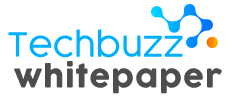Cortechs.ai, a leading provider of AI-powered neuroimaging software, has announced the acquisition of intellectual property from ZepMed, LLC, which includes its patented CT imaging technologies and flagship solution, NeuroAlign CT™.
This strategic move reinforces Cortechs.ai’s leadership in radiological innovation and broadens its portfolio of advanced solutions designed to empower clinicians across the globe.
“With this acquisition, we’re not just expanding our portfolio, we’re building on ZepMed’s foundation to elevate development and deliver even more powerful tools to our users,”
said Kyle Frye, CEO of Cortechs.ai.
“This is an exciting growth milestone as we continue to enhance the solutions trusted by healthcare professionals around the globe.”
ZepMed, known for its groundbreaking advancements in CT imaging, created NeuroAlign CT™, a Class II FDA-cleared software designed to automate the segmentation, alignment, and reformatting of head CT scans.
This technology enhances diagnostic precision and optimizes radiology workflows, enabling clinicians to identify subtle brain anatomy changes with improved accuracy, efficiency, and confidence.
“We at Zepmed are proud of what we built with NeuroAlign®, and we are excited to see it reach its full potential in the hands of Cortechs.ai,”
said Douglas Bates, MD, Co-founder of ZepMed.
“Cortechs’ support and development team will enhance user experience and add features, ensuring that the technology benefits more clinicians and patients worldwide.”
“This ownership strengthens our commitment to delivering AI-powered diagnostic solutions that span both neuroimaging and radiology,”
said Daniel Livschutz, Chairman of the Board for Cortechs.ai and Founding Partner of VILAS Ventures.
“As investors, we’re proud to support Cortechs.ai’s record growth, IP ownership and strategic expansion as market leaders. With the integration of ZepMed’s innovations, we’re not just adding capabilities, we’re architecting a continuum of care that spans surveillance, diagnosis, and risk. This positions Cortechs to complete the entire precision medicine value chain, moving beyond silos toward a multimodal ecosystem that better serves patients, clinicians, and payers alike. We’re excited to continue building the Cortechs.ai platform and look forward to the impact it will drive worldwide.”






